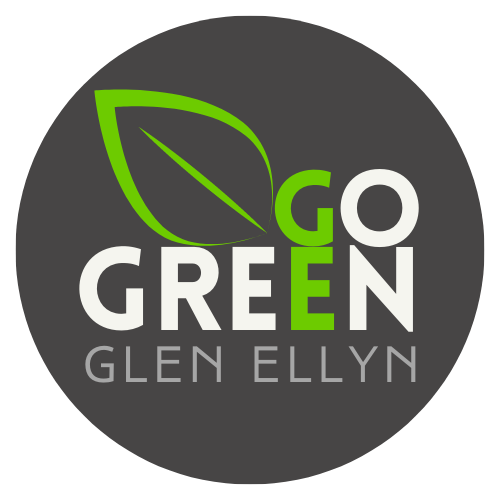Plastic Free July!
by Jac, GGGE President
While we might feel like we cannot stop the planet's warming, there are actions we can take. Participating in plastic-free July is a great example of some simple things you can do at home, with family and friends, to help protect your health and the health of our planet. We explain the impact in this week's newsletter!
Together we can learn, do, and participate in everyday environmental actions that make our community more healthy, more beautiful, and more environmentally friendly for all.
Learn
How to reduce "Pointless Plastic"
Plastic Free July is a global movement that challenges people to reduce their plastic consumption throughout July and beyond. While we need plastic for things like medical supplies and safety equipment, there are many types of single use plastics which are not designed to be recycled or reused that leads to increasing plastic waste in our environment. We like to call these "pointless plastics!" Aside from not being needed, they are leading to increasing health and environmental problems.
How is plastic problematic to the planet?
Besides the obvious litter concerns, plastic production is exacerbating our climate crisis. According to the International Energy Agency, petrochemicals, the category that includes plastic, now account for 14 percent of oil use, and are expected to drive half of oil demand growth between now and 2050! And nearly half of our annual plastic production is for single-use items (something used for a few minutes and thrown away, many times these are "pointless plastics!"). As a world, we are trying to move away from fossil fuels. Plastic will not let us do that.
How is plastic problematic to our health?
Plastic is made from fossil fuels and chemical additives. A number of these chemical additives include known carcinogens and endocrine disruptors that are potentially harmful to human health. Examples are vinyl chloride, bisphenols (i.e. BPA), parabens, phthalates, per-and polyfluoroalkyl substances (i.e. PFAS), and more.
What happens when plastic enters the environment?
Plastic does not biodegrade. Instead it breaks apart into small fragments known as micro and nanoplastics. Microplastics have been found everywhere: in air, water, rain, snow, soil, and our bodies.
What happens when plastic enters our bodies?
When plastic enters our food web and our bodies, these harmful chemicals can leach out.
These chemicals have been linked to human health issues like reproductive, neurological, and immunity dysfunction, and other problems like obesity and hormone-sensitive cancers, cardiovascular disease, and premature births.
But plastic is EVERYWHERE!!! What can I do as one person?!
We know this can feel overwhelming! But, there ARE steps we can take.
In your home, you can reduce your exposure to these chemicals by reducing plastic when possible and practical for your family. Avoid heating food in plastic or styrofoam - studies have shown chemicals can leach out when these are heated. Avoid storing fatty or oily foods in plastic containers - studies have shown that plastic chemicals are drawn to and readily absorbed by fatty substances. And, reduce your use of single-use plastics that are used to consume food and drink like containers, straws, and plastic utensils.
We also need to act as a community and make changes on a larger scale to address unnecessary, non-recyclable plastic waste. Together with local businesses and community leaders and officials, we can discuss ways to reduce single use plastics in our community by exploring alternatives for reusables, alternative packaging, or eliminating plastic altogether where feasible.
If you are interested in being a part of our conversation on reducing plastic in Glen Ellyn, email us!
Do
Actions you can take
Help reduce your exposure and combat plastic pollution at the same time by trying one, two, or all of these tips to reduce single-use plastic:
Carry a reusable/refillable metal or glass water bottle
Bring your own to-go mug for your coffee
Bring reusable bags to the store; keep them at the ready in your car and go bag!
Buy whole (instead of pre-cut) fruits and veggies and bring home in a bag you already own, and buy eggs in paper cartons instead of foam cartons
Buy soda, water, or juice packaged in recyclable cans or glass, not plastic
Ordering in? Refuse plastic straws, plastic utensils, and condiment packages, and learn about the new law in Illinois that allows you to bring your own container to participating restaurants! Consumer Owned Container Guidelines (illinois.gov)
Dining out? Bring your own container for leftovers when you dine out
For summer get togethers, offer guests aluminum or reusable cups (#6 plastic “party cups” are not recyclable), and paper plates instead of styrofoam or plastic
Package leftovers or snacks in non-plastic containers and bags
AND PLEASE Contact your elected officials in Illinois and ask them to support HB 2376, a state bill to ban foam foodware at Illinois retailers and restaurants, and SB 2211/HB 4448, a state bill to ban plastic bags at Illinois retailers and restaurants. Here are 4 easy 1-click action alerts and petitions - sign and tell a friend!
Action Alerts and Petitions:
IEC: Kick Single-Use Plastic Now Action Alert & Letter to Legislator
IL PIRG Beyond Plastic: Tell your state representative: Phase out foam
Alliance for the Great Lakes: Tell Your State: Keep Plastic Out of Our Great Lakes
